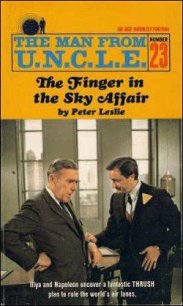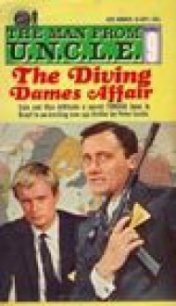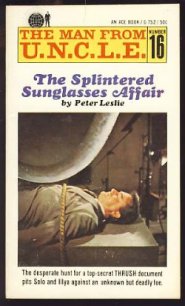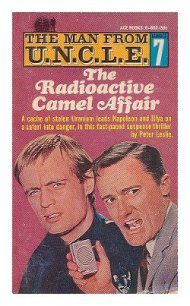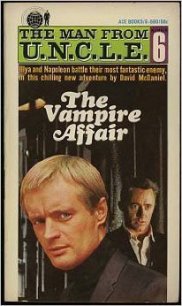The Unfair Fare Affair - Leslie Peter (книги онлайн полностью бесплатно .txt) 📗
While a boy in uniform carried up his single light-weight valise, Solo was shown his room by an elderly woman in a starched uniform and cap. Apart from the usual bedroom furniture, the vast floor space accommodated two armchairs, a settee, a desk, several low tables, and an enormous wardrobe that looked like a model of Chartres cathedral in mahogany.
Not quite knowing what to do, he sat in the lounge drinking a coffee and a brandy, read the papers, and finally climbed the stairs to his room. Nobody had made any attempt to contact him.
As he left, a busload of tourists was arriving. The foyer was full of suitcases, ranked like an army before the porter's lodge, and the revolving doors spun to disgorge more and more transatlantic visitors of both sexes, short, grim-faced and bespectacled to a tourist, in search of shelter for the night.
Solo had resigned himself to a breakfast comprising a cup of coffee and a single croissant, and so it was with some surprise that he saw the tray left on his bedside table the following morning. On it there were coffee, hot milk, orange juice, black bread, white bread, whole wheat bread, jam, marmalade, rolls, slivers of raw bacon, a shelled boiled egg naked in a glass, cold ham, and several enormous slices of Gouda and Edam cheese.
He jumped out of bed, showered, shaved, and carried the tray to the largest of the tables. Such a meal, he felt, should be attacked by a man properly seated rather than by a sybarite lounging in bed!
When he had eaten as much as he could, he drew back the curtains and walked out onto the tiny balcony projecting from the facade of the hotel four floors above the entrance.
The place was on a corner of a T-junction whose cross- piece was formed by the station concourse. Opposite it was a line of stores, arid the wide road between them forming the stem of the letter accommodated at its center the terminus of a tramway line. Queues of workers who had arrived by train were already crowding the island refuges on each side of the lines, waiting to board cars for the city center of Scheveningen. It was cold on the balcony, but the sky over head was free of clouds, and bars of pale sunshine slashed the cream stucco of the buildings across the road.
Solo drew the cord of his dressing gown tight and surveyed the scene. Two men were pushing a gigantic barrel organ into position at the edge of the sidewalk below his window. It rested on four wheels and was pulled by shafts. The body of the machine must have been twelve or fourteen feet high, and on the brightly painted, scalloped wood of its canopy, multicolored lettering spelled out the legend DIE GROOTE HELDINGEN.
One of the men began turning a large handle projecting from the back of the organ while the other guided into a neat stack an unending succession of punched sheets, which the instrument vomited out concertina-wise as the rollicking, wheezing, jolly music cascaded into the wintry air.
Before the first tune was over, coins were showering down from the hotel windows and bouncing across from the city-bound workers by the trams. Solo ducked back into his bedroom to get a handful of small change.
His first toss was badly judged—the coin, lobbed too vigorously, landed some way from the organ and rolled into the groove of a tramline. Determined to succeed with the second, he leaned down over the balcony rail and tossed it more carefully toward the waiting musician.
As he bent forward, the rifle on the fifth floor of the building opposite cracked, and a bullet smacked into the brickwork behind his head.
Even as the agent's mind registered the explosion, a second slug drilled the French door, sending fragments of glass tinkling to the floor. The third shot was dead accurate. It whined across the balcony a foot above the rail, exactly where Solo had been leaning an instant before.
But by this time he was flat on his face on the cement floor, worming his way backward into the room.
Chapter 6
Enter An Old Friend
BEFORE VENTURING out of his room, Solo thought it prudent to stow about his person several devices perfected by the specialists in U.N.C.L.E.'s armory. These—which had been packed below the false bottom of his valise—included a fountain pen that fired a jet of liquid nerve gas; a cigarette lighter that ejected a sleep dart that would knock a man unconscious within a second; and a rather special pack of cigarettes. One of these was in fact a white-painted bolt of metal—and when the pack was squeezed a powerful spring projected it through the torn corner hard enough to render an adversary senseless at a range of ten feet.
There was also a tiny Berretta automatic, which the agent cached in a special holster clipped to his belt just behind his right hip. When he was dressed, it was completely hidden by his jacket.
At ten-thirty, he went warily downstairs and asked if there were any messages for him. There weren't.
He bought papers and sat in the lounge sipping Campari and soda. Every time the elevator cage opened or the entrance doors revolved he looked up. He felt absurdly vulnerable; whoever was after him seemed unusually well informed about his movements. It was a little alarming. And just because they had failed twice, this didn't mean they wouldn't try a third time. And it could be third time lucky––for them!
At eleven o'clock, Solo walked along the passage toward the dining room—and suddenly realized why Waverly had sent him here.
On the left of the wide corridor was the hotel's hairdressing salon. And from the archway leading to the reception counter and the chairs beyond, a rich and fruity voice boomed out in execrable Dutch.
Halting in his stride, the agent peered in. Surely it couldn't be true! The last time he had heard that voice had been in Brazil... and then he hadn't believed it!
But there was no mistake about it, the third draped figure before the minors, sitting lower than the others, turned out to be an enormous man in a wheelchair. Weighing more than 280 pounds, he sat with the great swell of his belly thrusting out the barber's sheet like a tent, the massive folds of flesh encasing his skull almost burying the unexpectedly humorous blue eyes twinkling among the fat.
It was Habib Tufik, alias Manuel O'Rourke!
Solo didn't go in right away. He waited by the entrance to the salon, watching the dexterous, almost balletic, movements of the barber as he guided a cut-throat razor unerringly among the convexities of the big man's chin.
Tufik—as he was originally named—had been born of an Irish mother and a Moroccan father. After an early encounter with gangsters that had crippled him for life, he had set up in Casablanca a specialized information service that had been without equal in the world. Police forces, embassy staff, military attaches, detectives, lawyers, newspapermen, crooks and secret agents from all over the world had come to him to buy the lowdown on anything from the private life of a foreign minister to the accommodation address used by an insignificant clerk. For Tufik sold information— just that. Any piece, or pieces, of knowledge required could be bought from him—at a price. He took no sides, and he asked no questions. The only reservation he had was that he would not sell information about one client to another.
His unrivaled sources had been built up over many years, and his encyclopedic knowledge derived in part from an exhaustive cross-referencing of gossip items culled from press outlets all over the world, in part from an adept system of bugging, and in part from plain eavesdropping and informing. It was said, though, that a fair proportion of the vast sums he received for his services was redeployed among the army of elevator operators, reporters, chambermaids, reception clerks, airline stewardesses, and cab drivers who supplied much of his raw material.
